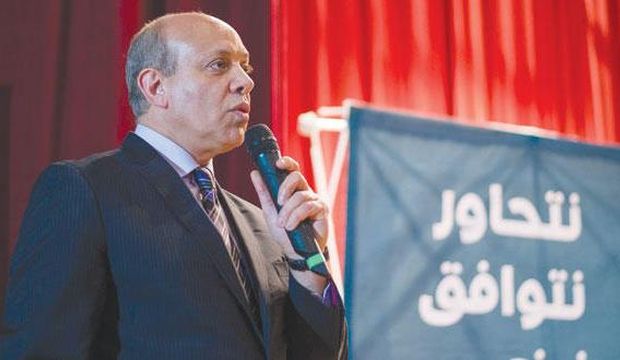London, Asharq Al-Awsat—Amid all the violence that continues to plague Libya three years after the toppling of the late dictator Muammar Gaddafi, the country’s efforts to construct a functioning political system are often overlooked, perhaps understandably so.
One prominent example was the election of a new parliament on June 25, which went ahead despite the deadly violence caused by the ongoing struggles between militias associated with different factions across the country. The turnout was extremely low—less than half of eligible voters turned out—in a stark demonstration of the population’s loss of faith in Libya’s nascent institutions.
Nonetheless, attempts continue to both to write a new constitution and bring the country’s squabbling factions together, in an effort to resolve the issues—regional secession, corruption, the role of religion in politics—that threaten to split the country apart.
Asharq Al-Awsat spoke to Fadil Al-Ameen, who oversees the committee preparing for the launch of Libya’s National Dialogue process, about the efforts of his colleagues, and his hopes for the future of his troubled country.
Asharq Al-Awsat: Can you give us more information about the Libyan National Dialogue and what your committee has achieved so far?
Fadil Al-Ameen: The preparatory body . . . is concerned with the preparation and administration of the National Dialogue in Libya and is made up of a number of patriotic Libyan figures and volunteers from across the country, who do not [hold] a specific vision or political stance. They met to lay the practical foundations for the National Dialogue with the aim of achieving national consensus and formulating a unified national vision for the future of Libya.
The preparatory body has established a 75-strong advisory team that studied the outcome of the National Dialogues in Tunisia and Yemen and received technical support from the UN about the design of the Libyan National Dialogue.
We held several rounds of meetings aimed at engaging with society, which lasted over two months. They included holding dialogues in 34 cities across the country. We held dozens of consultations with senior figures, including Libyan tribal sheikhs and dignitaries, the Shura Council (consultative council), members of local councils, and the newly elected members of the Libyan parliament. The aim . . . was to gather the views of people from across the country about the best ways to launch an inclusive and transparent National Dialogue, and build a true and lasting consensus about the key issues.
Q: What is your view of the Libyan government from the perspective of the National Dialogue?
The state of turmoil and instability we are experiencing in Libya today did not stop us from continuing our work. We achieved great success in the parliamentary elections held on June 25, in addition to the continued, serious work being done by the constitution-drafting body. We have confidence in the intentions of the current central government in terms of working in the best interests of all Libyans. In our turn, we are committed to working to achieve stability and to build greater confidence in the government.
Q: Are you concerned for your safety, particularly after the assassination of the lawyer and human rights activist Salwa Boukaiqis and the kidnapping of her husband, an elected member of the municipal council of Benghazi?
We were shocked by the brutal assassination of Salwa and the kidnapping of her husband. But the incident will not deter us from continuing our work; instead it motivated us to consolidate and double our efforts. By completing what we have achieved with Salwa, we will be able to honor her memory and build a legacy worthy of her status.
Calls for national dialogue have increased over the past period, particularly with the present wave of assassinations and violence. We are confident that this wave of support will help to launch the National Dialogue, which will be inclusive of all those who renounce violence, with no place for murderers.
Q: Have the chances of holding the Dialogue dwindled after the assassination and the escalation of violence?
No, these incidents will not affect the dialogue at all. The need for dialogue is stronger than ever and many people endorse the idea that increasing violence will not lead to anything.
We, for our part, will devote all our energy towards building a process of a constructive national dialogue and to providing an atmosphere where all sides feel capable of achieving their goals, without the need to resort to violence.
Q: Can Libya’s tribal and political conflicts be solved?
Dialogue is the only option we have. Through dialogue we can arrive at a consensus on the best ways to move forward and ensure that everyone feels they are investing in the building of a tolerant vision and a strong state capable of rising again.
I am confident that once we have consensus about some of the [simpler] matters, including what our national identity, values and our vision for the future of the country are, we will find that many people will be more disposed to removing the obstacles standing in the way of development in our country.
This interview was originally conducted in Arabic

